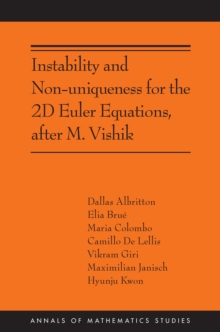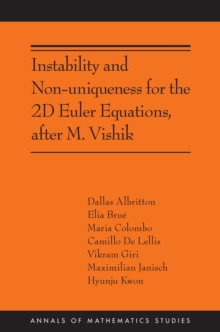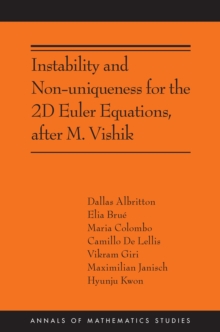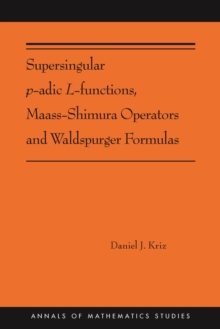
A Hierarchy of Turing Degrees : A Transfinite Hierarchy of Lowness Notions in the Computably Enumerable Degrees, Unifying Classes, and Natural Definability (AMS-206) Paperback / softback
by Rod Downey, Noam Greenberg
Part of the Annals of Mathematics Studies series
Paperback / softback
Description
Computability theory is a branch of mathematical logic and computer science that has become increasingly relevant in recent years.
The field has developed growing connections in diverse areas of mathematics, with applications in topology, group theory, and other subfields. In A Hierarchy of Turing Degrees, Rod Downey and Noam Greenberg introduce a new hierarchy that allows them to classify the combinatorics of constructions from many areas of computability theory, including algorithmic randomness, Turing degrees, effectively closed sets, and effective structure theory.
This unifying hierarchy gives rise to new natural definability results for Turing degree classes, demonstrating how dynamic constructions become reflected in definability.
Downey and Greenberg present numerous construction techniques involving high-level nonuniform arguments, and their self-contained work is appropriate for graduate students and researchers. Blending traditional and modern research results in computability theory, A Hierarchy of Turing Degrees establishes novel directions in the field.
Information
-
Available to Order - This title is available to order, with delivery expected within 2 weeks
- Format:Paperback / softback
- Pages:240 pages, 3 b/w illus.
- Publisher:Princeton University Press
- Publication Date:16/06/2020
- Category:
- ISBN:9780691199665
Other Formats
- Hardback from £145.95
- PDF from £52.50
Information
-
Available to Order - This title is available to order, with delivery expected within 2 weeks
- Format:Paperback / softback
- Pages:240 pages, 3 b/w illus.
- Publisher:Princeton University Press
- Publication Date:16/06/2020
- Category:
- ISBN:9780691199665










